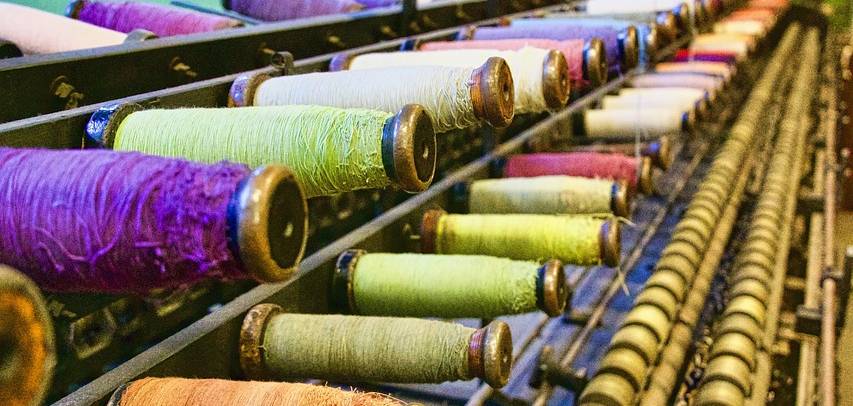
Today, the Commission is proposing rules to make producers responsible for the full lifecycle of textile products and to support the sustainable management of textile waste across the EU. This initiative will accelerate the development of the separate collection, sorting, reuse and recycling sector for textiles in the EU, in line with the EU Strategy for Sustainable and Circular Textiles. Increasing the availability of used textiles is expected to create local jobs and save money for consumers in the EU and beyond, while alleviating the impacts of textile production on natural resources.
The Commission is proposing to introduce mandatory and harmonised Extended Producer Responsibility (EPR) schemes for textiles in all EU Member States. EPR schemes have been successful in improving the management of waste from several products, such as packaging, batteries and electric and electronic equipment. Producers will cover the costs of management of textile waste, which will also give them incentives to reduce waste and increase the circularity of textile products – designing better products from the start. How much producers will pay to the EPR scheme will be adjusted based on the environmental performance of textiles, a principle known as ‘eco-modulation'.
Common EU extended producer responsibility rules will also make it easier for Member States to implement the requirement to collect textiles separately from 2025, in line with current legislation. The producers' contributions will finance investments into separate collection, sorting, re-use and recycling capacities. The proposed rules on waste management aim to ensure that used textiles are sorted for reuse, and what cannot be reused is directed to recycling as a priority. Social enterprises active in the collection and treatment of textiles will benefit from increased business opportunities and a bigger market for second-hand textiles.
Today's proposal will also promote research and development into innovative technologies for the circularity of the textiles sector, such as fibre-to-fibre recycling.
The proposal also addresses the issue of illegal exports of textile waste to countries ill-equipped to manage it. The new law would clarify what constitutes waste and what is considered reusable textiles, to stop the practice of exports of waste disguised as being done for reuse. This will complement measures under the proposal for a new Regulation on waste shipments that will ensure that shipments of textile waste only take place when there are guarantees that the waste is managed in an environmentally sound manner.
Today's proposal for a targeted revision of the Waste Framework Directive also includes measures concerning food waste, detailed in a separate Q&A.
Next steps
The Commission proposal on a targeted amendment of the Waste Framework Directive will now be considered by the European Parliament and the Council in the ordinary legislative procedure.
Background
The EU generates 12.6 million tonnes of textile waste per year. Clothing and footwear alone accounts for 5.2 million tonnes of waste, equivalent to 12 kg of waste per person every year. Currently, only 22% of post-consumer textile waste is collected separately for re-use or recycling, while the remainder is often incinerated or landfilled.
The Waste Framework Directive is the EU's legal framework for waste management in the EU. It sets the definitions related to waste management, including definitions of waste, recycling and recovery, the waste hierarchy and basic concepts.
Today's initiative delivers on the Commission's commitment made in the EU Strategy for Sustainable and Circular Textiles to propose measures to harmonise Extended Producer Responsibility rules for textiles, and to develop economic incentives to make textile products more sustainable and circular.
For more information
Commission proposal for a targeted revision of the Waste Framework Directive
Webpage on Waste Framework Directive
Webpage on EU Strategy for Sustainable and Circular Textiles
Factsheet on Extended Producer Responsibility for Textiles
Quote(s)
"This legislative proposal is a significant step towards a more sustainable and circular textile sector, delivering on our landmark Textiles Strategy. Harmonised extended producer responsibility rules across the EU will create a level playing field on the single market and ensure the application of the polluter pays principle. This initiative will drive investments in the re-use and recycling infrastructure for textiles, create local jobs and boost innovation in all phases of textiles’ lifecycle. It will also create cost-saving opportunities for citizens who choose vintage, timeless fashion over fast fashion." Virginijus Sinkevičius, Commissioner for Environment, Oceans and Fisheries - 05/07/2023
"The way we produce and consume clothes is highly unsustainable. In the European Union alone, we throw away about 5.8 million tonnes of textiles every year. That is nearly 11 kilos per person. The wasteful relationship we have developed with textiles pollutes our world. It uses excessive amounts of water and energy, harms nature, and drives greenhouse gas emissions across the globe. That's why we will require producers to take stronger responsibility for the textile waste created. The collected fees will be used to boost reuse and repair sectors, so that we build a more sustainable relationship with the clothes we wear." Frans Timmermans, Executive Vice-President for the European Green Deal - 05/07/2023
Sources :
- European Commission
Posted on 2023-07-05 16:07








Comments